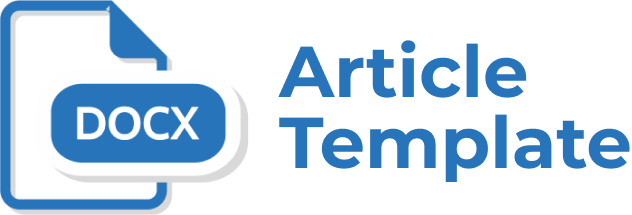Constructing Scientific Argumentation in Inquiry Based Reading : Frameworks for Analyzing Argument Process in the Classroom
Abstract
The purpose of this study was to investigate the impact of inquiry-based reading on students’ argumentation skills and how scientific argumentation was constructed in science classroom communication. In this classroom research, 59 students of Biology Education Program at a state university in Central Java, who were at their third semester, participated in the inquiry-based reading for 10 weeks. The data were qualitatively and descriptively analyzed in search of ways that could describe the observed changes in students’ performance on argumentative process and argumentation product. Argumentation process illustrated how they stated claim, found evidence, formulated reasoning, defended their argument, questioned and evaluated other’s claim. The results showed that students’ argumentative skills related to their understanding of problem context and the argumentation products increase as they experienced in inquiry based reading. The study describes empirical facts of how scientific argumentation is built as part of inquiry in inquiry-based reading and implication for future research.
Full Text:
PDFReferences
Azevedo, F., Martalock, P., & Keser, T. (2015). The discourse of design-based science classroom activities. Cultural Studies of Science Education Vol. 10, 285-315.
Bradbury, L. (2014). Linking Science and Language Arts: A Review of the Literature Which Compares Integrated Versus Non-integrated Approaches. Journal of Science Teacher Education Vol.25, 465–488.
Cao, M., Tian, J., Dezhi, D., Liu, J., & Sun, X. (2015). What Makes It Difficult to Understand a Scientific Literature? 11th International Conference on Semantics, Knowledge and Grids (SKG) (pp. 89 - 96). Beijing: IEEE.
Erduran, S., Ozdem, Y., & Jee, Y. (2015). Research trends on argumentation in science education: a journal content analysis from 1998-2014. International Journal of STEM Education Vol. 2 (5).
Guerrero, J., & Ramos, P. (2015). Mind Mapping for Reading and Understaning Scientific Literature. International Journal of Current Advanced Research, 485-487.
McDonald, C. (2017). Exploring Nature of Science and Argumentation in Science Education. In B. (. Akpan, Science Education: A Global Perspective (pp. 7-43). Switzerland: Springer International Publishing.
Nussbaum, E., Sinatra, G., & Owens, M. (2012). The Two Faces of Scientific Argumentation:.
Phillips, L., & Norris, S. (2009). Bridging the Gap Between the Language of Science and the Language of School Science Through the Use of Adapted Primary Literature. Research in Science Education Vol.39, 313–319.
Ryu, S. &. (2012). Improvements to elementary children’s understanding from sustained argumentation. Science Education Vo. 96, 488-526.
Sampson, V., & Clark, D. (2011). A Comparison of the Collaborative Scientific Argumentation Practices of Two High and Two Low Performing Groups. Research in Science Education Vol. 41, 63-97.
Schwarz, B. B. (2009). Argumentation and Learning. In M. N. Mirza, & A. N. Clermont, Argumentation and Education, Theoretical Foundations and Practices (pp. 91-126). New York: Springer Science+Business Media.
Seah, L. (2016). Elementary Teachers’ Perception of Language Issues in Science Classrooms. International Journal of Science and Mathematics Education Vol. 14, 1059–1078.
Toulmin, S. E. (2003). The Layout of Arguments, Updated Edition. New York: Cambridge University Press.
van Eemeren, F., Garssen, B., Krabbe, E., Henkemans, A., Verheij, B., & Wagemans, J. (2014). Handbook of Argumentation Theory. London: Springer Dordrecht Heidelberg New York.
Wright, K., Franks, A., Li, J., McTigue, E., & Serrano, J. (2016). Both Theory and Practice: Science Literacy Instruction and Theories of Reading. International Journal of Science and Mathematics Education Vol. 14, 1275–1292.
Yarden, A., Norris, S., & Phillips, L. (2015). Adapted Primary Literature, The Use of Authentic Scientific Texts in Secondary Schools. Dordrecht : Springer Science+Business Media .
Refbacks
- There are currently no refbacks.


